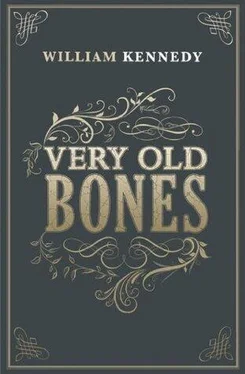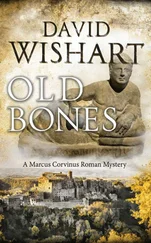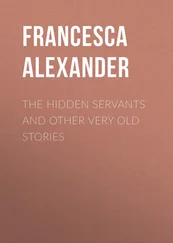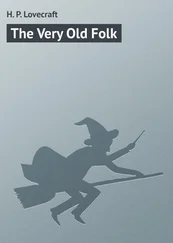“True love,” said Brenda. “Men only want my body.”
“What a pity,” said Giselle.
“It’s good for business, is how I look at it,” said Brenda. She stood up from the bar stool. “Business calls me.”
“Happy business,” Giselle said as Brenda left us.
“A lively mind, don’t you think?” I said.
“I’d say her tits were her best feature,” Giselle said.
On stage Brenda worked with a film of herself dancing, and a stage spotlight. The film and her live dance were the same but in the film she was seducing a shadowy male figure. As she removed a garment on stage the camera moved in for a close-up on the area about to be revealed, then cut away as the stage garment was tossed. The spotlight dimmed progressively as nudity impended, and then the camera focused in grainy close-up on the parts of Brenda that were illegal in the flesh.
“Clever juxtaposition, isn’t it?” I said. “It was Brenda’s own idea.”
“Two Brendas for the price of one,” Giselle said.
I turned my back to Brenda’s performance and faced Giselle. “I have something I must tell you,” I said.
“Don’t you want to see how Brenda comes out?”
“I know how Brenda comes out. My editor didn’t buy my book, he rejected it. The money I spent belonged to your friendly editor from Life. I took two of his checkbooks and his identification to cash them. It’s really quite simple to assume a new identity.”
Giselle stared and said nothing.
“The care and feeding of love and beauty should be a primary concern of the human race, but if I can’t afford it at any given moment, it doesn’t follow I should abandon my concern. Making love to you this afternoon, I argued with myself about confessing the deed, but confession would have destroyed the aura of love that we’d created. I also tried to understand whether my fraudulence was enhancing or diminishing my excitement, and decided it wasn’t a factor, that I existed for you apart from my fraudulence. But I knew the confession would change your view of what was happening, and I didn’t want that. I wanted you to see what lies in store for you in America, the future of your ambition, which we both know is formidable. You will have a successful career, I’m certain of that. Given our marriage and our love, I suspect you’d be inclined to tuck me in your pocket and carry me along with you, or park me in an apartment on the Upper East Side while you circle the globe with your camera. But I would rather have no Giselle than half of Giselle. I could never survive the madness that would follow such a raveled connection.”
I knew that as I talked Giselle’s vision was framed by the real and the filmic visions of Brenda’s performance, naked on screen, all but naked on stage. I turned to see Brenda remove her G-string and, unlike Consuela, stand before the club crowd without a garment, letting all eyes find what they sought while she danced another sixteen bars, and then, lights out, she was gone.
“Brenda looks naked, doesn’t she?” I said. “More fraudulence: She never lets herself be naked. She’s wearing an all-but-invisible G-string she puts on with adhesive. It covers her opening, and has a bit of hair that matches her own. She provides the illusion of nudity while she retains the protective integrity of the larger G-string, and so the customers never see the complete Brenda. I find a fascination in this betrayal of the public trust, don’t you? Most of the time in this life when you see a naked pussy you assume it truly is a naked pussy. Since we all live in the great whorehouse, and since we all give a fuck whenever we can, no matter what the cost, the discovery that even the most openhanded lewdness is only another act of cynicism seems just right, admirable even. Dr. Tannen used to chide me for my quest for innocence, or at least that’s how he described it. He said my time underground, or in the sewer as you put it, was really a search for something that didn’t exist in the world, not now, not ever. How far back in darkness do you want to go to find that innocence? he asked. The womb? Amniotic innocence? Do you really think the womb was such an innocent place? Maybe you’d like to go back beyond the womb to the soul’s descent into the womb, or back even to the soul’s creation. Personally, he said, I don’t think you can get there from here.”
Giselle put her hand on the right side of my head and held it. “Do you still get the headaches?” she asked.
“Once in a while,” I said.
“How often do you see the doctor?”
“We’re quits. I can’t afford him. But I understand. He doesn’t run a free lunch counter.”
“It was beautiful, what you did for me,” Giselle said.
“I’m glad you liked it,” I said. “I’ll pay your friend back when I get the advance on the Meriwether book.”
“Don’t worry about it. I’ll take it out of my paycheck.”
“You are a generous woman, Giselle.”
“You’re a loving husband, Orson.”
“Yes. That’s true. Isn’t it a pity.”
Giselle dropped her hand from my head, took my hand in hers, and was smiling her smile of rue when the shooting began in the street. One shot broke the window in the club’s door, and Eddie the barman yelled, “Get down, folks, they’re shootin’ out there.”
I could see someone huddled in the doorway until the lights went out, heard a pistol fired twice, three times, four, heard a volley of return shots, and then the doorway went silent. Eddie switched the lights back on and when he opened the door a man in a light-gray overcoat rolled down from the two steps where he’d been huddling. Two uniformed policemen with drawn pistols stood on the sidewalk observing the situation. Both holstered their pistols and one went elsewhere.
“Who is he?” Eddie asked the policeman.
“He just held up the joint next door.”
An Interview with the Corpse on 52d Street
by Orson Purcell
The interview took place on the threshold of The Candy Box, a Manhattan nightclub on 52nd Street, a crosstown artery that is home to two dozen jazz bars and exotic dance clubs along its neon way. The corpse was male, reasonably well dressed, without a necktie, but wearing a shirt with starched collar, double-breasted dark gray suit, gray overcoat, and a gray fedora that had fallen off when the man was shot. Two policemen had come upon him almost as soon as he emerged, gun in hand, from an adjacent nightclub, where he had stolen an unspecified amount of money.
The door of The Candy Box remained open throughout the interview at the suggestion of police, who were awaiting the homicide photographer. A woman customer in The Candy Box was actually the first to photograph the corpse, using a Leica thirty-five-millimeter and natural light. This dramatic photo received wide currency, appearing in Life magazine six days after the shooting.
The corpse lay on its right side during the interview, bullet holes in its head, neck, chest, and other parts of the upper torso. The eyes were open, and the expression on the face (which was free of blood) was one of inquiry, as if the man had died asking a question. This was the first interview the owner of the corpse had ever given, either in life or in death.
O: Is there any single reason why you are dead?
C: The cops shot me eight times.
O: Why did they do that?
C: I shot at them.
O: Isn’t that a crazy thing to do?
C: You could say that.
O: Do all hoodlums behave this way?
C: Not everybody. It’s somethin’ you decide.
O: Was your decision prompted by the fact that you’re suicidal?
C: Hey whatayou sayin’? I was raised a Catholic.
O: Then maybe you were just stupid.
C: Nobody calls me stupid, buddy.
Читать дальше












